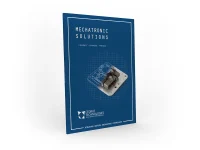Publications
Categories
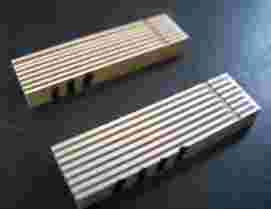
Piezo-composite patches applied to the detection of defects using lamb wave focusing
19 June 2023
Ultrasonic-based SHM (Structural Health Monitoring) applications usually rely on the use of piezo-electric patches to emit and receive ultrasonic surface acoustic waves. The principle is to study the propagation of the waves through a structure to assess its health. Because of the elevated number of echoes and possible modes of propagation of the acoustic waves within the structure, those applications suffer from a burden of signal processing. This paper presents a composite piezo-electric patch and its electronics that were designed and successfully tested for reducing the complexity of the SHM detection schemes.
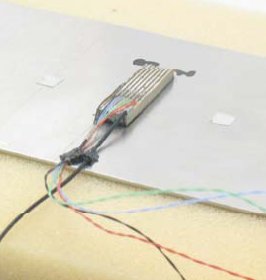
Piezo-composite transducer for mode and direction selectivity of Lamb waves
19 June 2023
Ultrasonic-based SHM (Structural Health Monitoring) applications commonly rely on the use of piezo-electric patches to emit and receive ultrasonic waves. The objective is to study the propagation of the waves through a structure to assess its structural integrity. Because of the elevated number of echoes and possible modes of propagation of the waves within the structure, those applications suffer from a burden of signal processing. This paper presents a composite piezo-electric patch that was designed and successfully tested for reducing the complexity of the SHM detection schemes by selecting the mode and direction of the Lamb waves received. The piezo-composite is composed of a row of eight independent ceramic pillars separated with polymer, so it is a 1-D matrix of independent piezo-patches. Used with adequate electronics and signal processing, it was shown that it allowed selecting the direction and the mode of the Lamb waves.
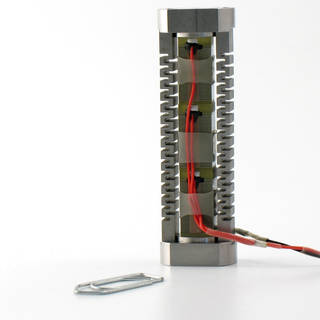
Piezoelectric Actuator for precise and fast Oval Pistons manufacturing
19 June 2023
Piezoelectric Actuator and related driving & control electronic for precise and fast «Oval Pistons» manufacturing Oval pistons are used in all automotive industry. Every vehicle, motorbike, car and truck uses oval pistons. The reason is that pistons in these vehicles are working in very hot environment and as a consequence, the external shape deformation induced thermal growth of the piston is compensated by these «ovalities» (oval shapes).
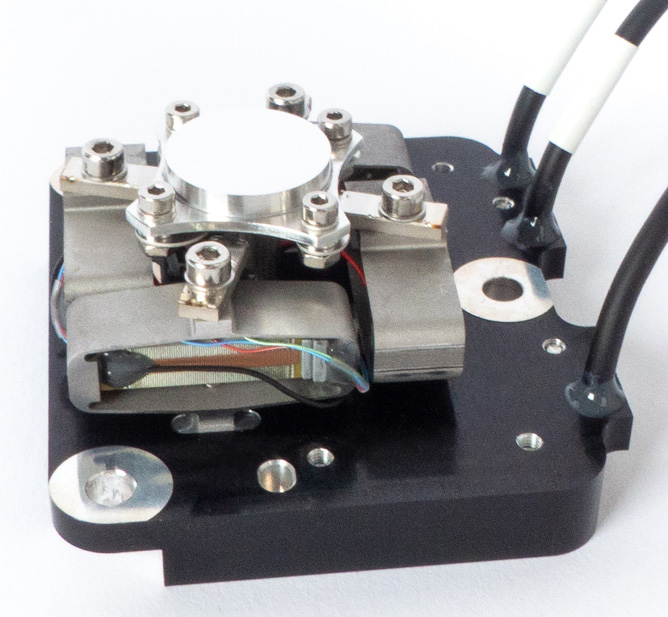
Piezoelectric and Magnetic Fast Steering Mirrors For Space Optical Communication
11 July 2022
New space giant constellations based on Free-Space Optical Communication (FSO) are a new challenge from many perspectives. Considering the mandatory cost efficiency, with repeatability of performances, and reliability with no defect at customer integration, requires an upheaval in space production and acceptance test methods, when the quantities are beyond several thousands of units. In this publication CEDRAT TECHNOLOGIES (CTEC) presents the design and test results of the P-FSM150S Pointing Ahead Mechanism (PAM) and M-FSM45 Fast Steering Mirror (FSM) Engineering Models, developed under ARTES project TELCO-B for future FSO constellations. The specific cost-efficient hardware design is presented, dedicated to very large quantities to be manufactured, together with the performance test results over a preliminary batch of EM’s
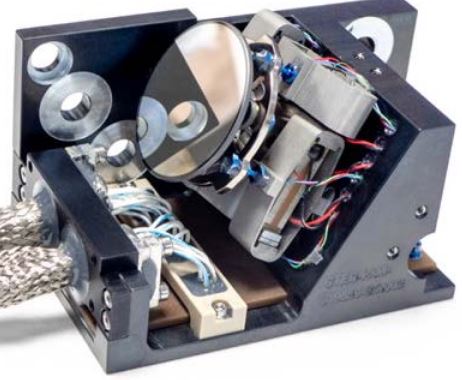
Point Ahead Mechanism for Deep Space Optical Communication Development of a New Piezo-Based Fine Steering Mirror
19 June 2023
The purpose of this paper is to present the development of a novel tip-tilt mechanism, with integrated optics, designed for the JPL Deep Space Optical Communication (DSOC) module of the upcoming Psyche mission (2022 launch). This paper presents the design, assembly and tests of the produced models. Regarding the design phase, an emphasis was put on the mirror calculations to ensure that the required flatness would be maintained after integration, and that the part would withstand the thermal/mechanical environment. The actual optical measurements performed after assembly are also presented. The qualification results for a new alpha-case removal process for titanium parts are presented. Tests results are especially interesting
regarding the temperature behavior of the mechanism, impact on the stroke, and strain gage sensor feedback.
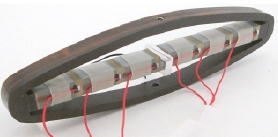
Potentialities of APA® composite shell actuators and SA75D amplifier for new dynamic applications
11 January 2016
The piloting of APA’s composite shell by SA75D power amplifier offers new opportunities for dynamic new applications. Two in particular were received and are being studied: the design of a compact table tensile micro machine for characterizing stress-strain laws at high strain rate of wires, fibers, strands and textile samples that will usefully complete the fleet of dynamic testing machines available, the generation of synthetic jets of air pulsed also studied at ONERA. The energy capacity (displacement, force) without or with an external linear load were modeled versus the rise time using the Simulink code and experimentally measured using a very light device. Other identified improvements remain to be implemented both at the APA’s actuators as the Amplifier SA75D to get some gains.


